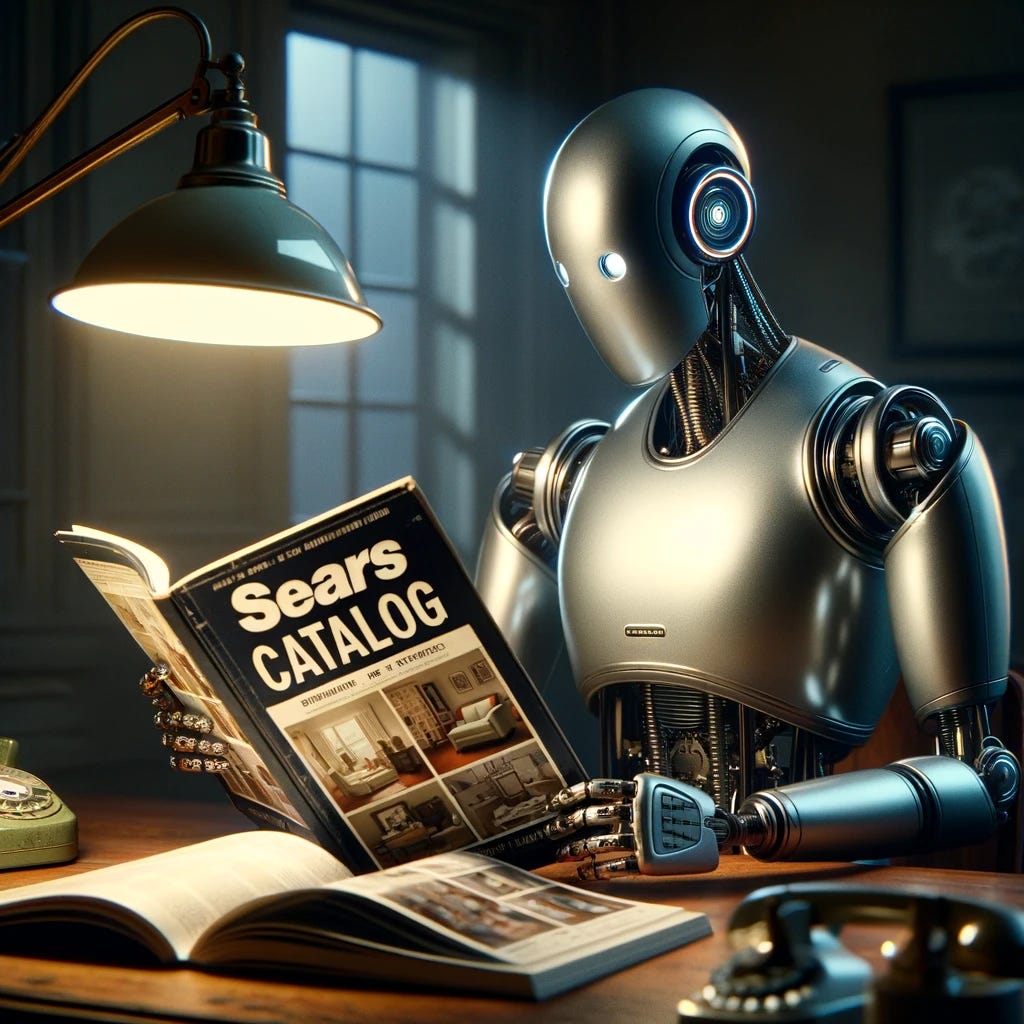
It has been over a year since Generative AI, led by ChatGPT, took the world by storm. Several academic studies have already investigated how these tools can be used in the workplace, and all show the same trend: when paired with Generative AI, knowledge workers can dramatically increase their productivity. And some predict that many jobs might be given over entirely to Generative AI at some point in the near future!
This new form of "white collar" automation has led to headlines predicting massive job losses, and it is not clear that there will be enough new "AI engineer" jobs to make up the difference. Some CEOs have announced they will lay off employees this year due to AI adoption. [Layoffs are more often a bad business decision for multiple reasons, see John Howe’s recent newsletter.] However, immediately cutting bottom-line labor costs can be especially dangerous when dealing with transformational technology for many reasons.
First, while many knowledge-working jobs involve tasks that can be assisted by Gen AI, it is the worker's expert judgment, synthesis, and analysis that produces high-quality output. Workflows and processes will need to be redesigned with human-AI collaboration in mind. In addition, Generative AI makes mistakes (commonly referred to as hallucinations), so this learning machine requires human oversight and guidance to operate effectively.
And unless your company builds its own generative AI system, it is tough to understand how these systems arrive at their output and what biases that output might contain. Not just racial and gender biases but information selection biases, such as what content is given more weight, which can cause Generative AI systems to overlook more exciting and profitable solutions.
With a technology that is changing so rapidly, there is also a case for waiting until it stabilizes before considering wide-scale adoption. It is called "bleeding-edge" technology for a reason.
Instead, I encourage you to think like my students and ask more critical questions: What can we do with this technology that has not been possible in the past? What services or products can we build that we couldn't do before? And what products or services do people pay us for now that they will not be willing to pay us for in the future? These are tough questions to answer.
In other words, we should not get distracted by how fast ChatGPT can summarize meeting notes or create a PowerPoint presentation. Instead, we should ask ourselves, "What will lunch be like in ten years when we live in an AI-mediated world?" That might seem ridiculous, but I have lived through several technological revolutions, and the "winners" of these revolutions work on answering the nonobvious, and tough, questions.
Many people compare Generative AI to other technology revolutions like the Internet or the World Wide Web, and I agree. However, I also remember how sad I was that the web killed off one of my favorite pastimes: browsing through the Sears catalog. When Sears saw the web, they realized they could reduce costs by putting their store hours on a website, posting ads online, and emailing coupons. At the same time, one couple (Jeff Bezos and MacKenzie Scott) saw the web and asked, "What will shopping look like in ten years in a web-mediated world?"
My students are working on the tough questions of this technology revolution and are figuring out how to use these tools to become the next Amazon. The fundamental question for existing organizations, including Universities, is will we become the next Sears?
📥Recent Talks, News and Videos
A hectic academic year has given me little time to write or share in this newsletter, but I am (for the fourth or fifth time) renewing my effort to write more, and I have lots of ideas about how to make the future great and the challenges to doing so. In the meantime, I wanted to share some of what I have shared with various media outlets about AI, Deepfakes, and future challenges.
KSHB Interview: Zero trust world Experts explore future of AI in politics
KOMU Interview: AI and deepfakes could impact 2024 elections. These groups hope to educate Missouri voters
Three Oaks Wealth Podcast: The Tech Landscape With Professor Scott Christianson: Generative AI, CBDCs, and Cryptocurrency
The Weekly Workplace Podcast: Embracing AI: The Role of Leaders in a Tech-Driven Workplace
Culture at Work Podcast: The AI Revolution: Transforming Work, Education, and Culture
And I was quoted in these articles:
AI in academia: It’s time to stop being a salamander (Columbia Missourian)
Entrepreneurs Without Borders (Columbia Business Times)
Τα deepfakes και το μέρισμα του ψεύτη (Kathimerini (Greek Newspaper))
Thanks for being a reader and colleague. More soon!
Prof C







Good points all the way 'round. The article linked below, probably (unfortunately) behind a paywall, might help us think about answers to your "Tough questions".
https://www.wsj.com/tech/personal-tech/what-i-got-wrong-in-a-decade-of-predicting-the-future-of-tech-06420bba?mod=wsjhp_columnists_pos2